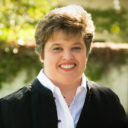Forging New Paths in Science-Faith Careers
Christians are uniquely positioned to transform the culture for Christ as they engage it at the highest academic levels, especially in science.
Christians are uniquely positioned to transform the culture for Christ as they engage it at the highest academic levels, especially in science. Reasons To Believe hopes to play a role in raising an army of Christian young people who are committed to developing their minds to the glory of God.
I conducted a series of interviews recently with the RTB science scholars, asking them for advice to help Christian students pursue careers in science. (You can listen to the entire series at the Educator’s Help Desk area of the RTB website.) Here are the top five principles that came from our discussions.
During high school, take as much math as possible.
Math forms a necessary foundation for many disciplines of science. It also provides vital critical thinking and problem-solving skills. All the RTB scholars agreed: when it comes to wanting to be a research scientist there is no such thing as too much math.
Learn computer programming.
Most sciences these days (outside of the medical field) require knowledge of computer programming. Some even require students to know how to program in more than one language. Former visiting scholar Dr. Patricia Fanning recounted how her background in computer programming played a role in her PhD dissertation as she worked in the developing field of bioinformatics. Students who know how to program computers will have more career options.
Consider chemistry or physics as a major.
These disciplines supply the foundation of many other areas of study. For example, Dr. Fuz Rana explained the career options for chemistry majors. They can go on to graduate school and study biological systems (biochemistry), physics (physical chemistry), geological systems (geochemistry), astronomical systems (astrochemistry), or pursue a career as a chemical engineer or become a biotech researcher. Many of these fields are on the frontiers of science and offer healthy employment rates.
Consider a career as an engineer.
Engineering is a good option for a student who enjoys math and science but wants to work in a more practical field of an applied science. Engineers, like those who work with Dr. Dave Rogstad at JPL, get to work on fascinating projects and solve practical problems. They are also highly employable. Emerging fields such as nanotechnology and biomimetics (see, “Using Nature’s Designs to Build a Better Mousetrap” and “New Frontiers of Christian Apologetics”) offer unique opportunities for those interested in studying the intricacies of God’s creation.
Prepare to be a missionary.
Seasoned evangelist Dr. Hugh Ross offers a great perspective: God calls Christians to go out into the world, not wait for the world to come to us. Students need to be adequately prepared in apologetics so they can offer a “reason for the hope” within them––with gentleness and respect––no matter what vocation they choose.
Listen to Krista Bontrager’s interviews with the RTB scholars on the “Educator’s Help Desk” podcast. click here






